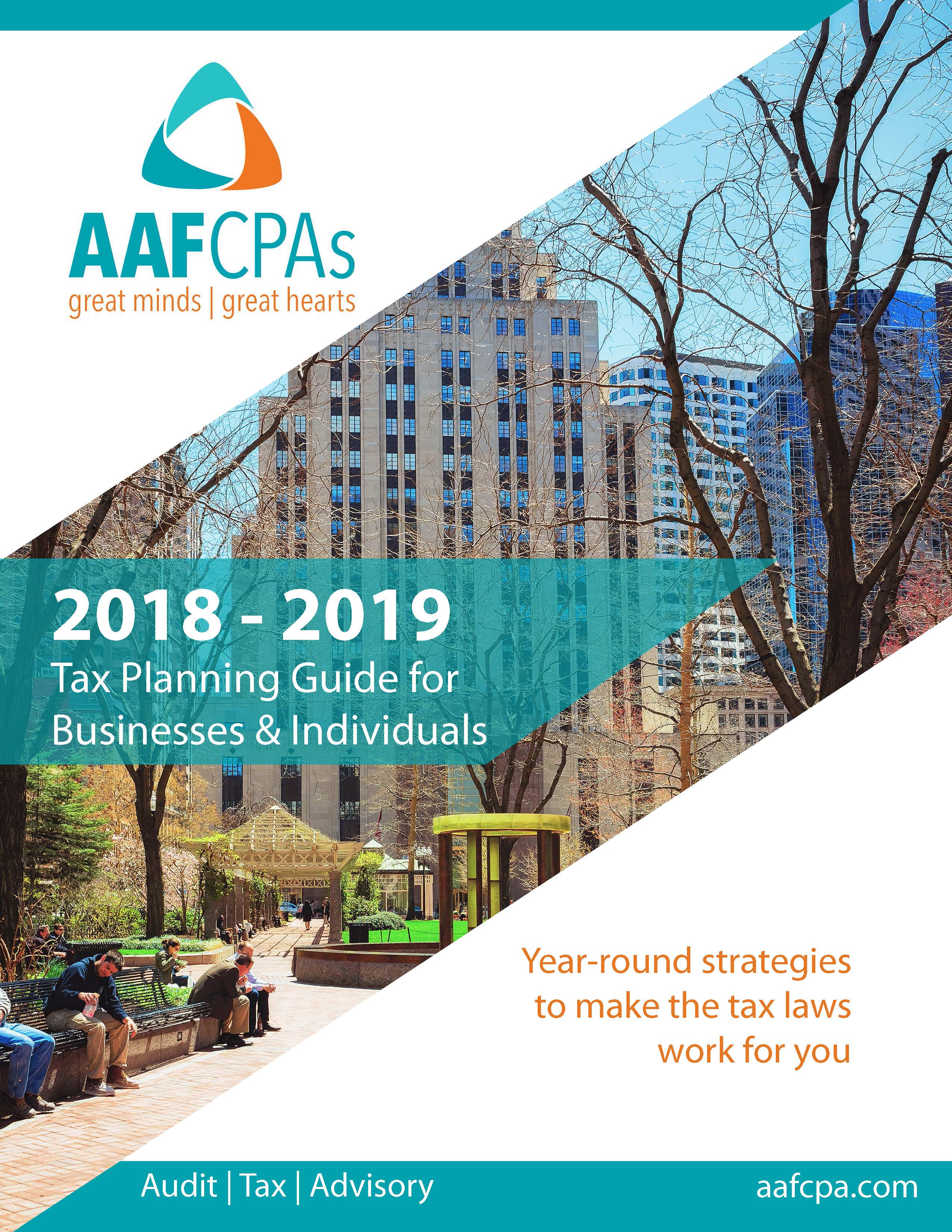AAFCPAs Releases 2018-2019 Tax Planning Guide for Businesses & Individuals

Looking for our latest tax guide? Click here for AAFCPAs’ 2019-2020 Tax Guide.
Although you cannot avoid taxes, you can take steps to minimize them. This requires proactive tax planning, including estimating your tax liability, looking for ways to reduce it, and taking timely action. In 2018, tax planning is more complicated than usual. Most provisions of the massive Tax Cuts and Jobs Act (TCJA) go into effect this year, and as a result we may need to change some of your tax planning strategies.
To help familiarize yourself and begin to identify strategies that might work for you in 2018, AAFCPAs is pleased to share our 2018-2019 Tax Planning Guide for Businesses & Individuals. It features many “What’s new!” sidebars summarizing some of the most significant TCJA changes and their potential impact on tax planning, and highlights other important tax law changes throughout. It also shows how various strategies apply to different situations, and presents descriptive charts, rate schedules, and case studies to help you understand the specifics of tax planning. As you look through it, we encourage you to note the sections or strategies that may apply to your situation.
Contents:
- Year-To-Date Review
- Executive Compensation
- Investing
- Real Estate
- Business Ownership
- Charitable Giving
- Family & Education
- Retirement
- Estate Planning
- Tax Rates
Download AAFCPAs’ 2018-2019 Tax Planning Guide for Businesses & Individuals >>
It may not be easy to familiarize yourself with the ins and outs of the TCJA, and to clearly know which steps to take. We encourage you to work with your AAFCPAs Tax Advisors, who understand the complexities of the new law and are well versed in the full range of actions you can take to save tax.
Additionally, AAFCPAs reminds clients that decisions made throughout the year in response to challenges and opportunities have tax implications. In some cases, the tax benefits of these decisions have windows of opportunity that may close if held and only addressed at year-end. In other cases, tax consequences may be avoided or minimized with timely advice from tax council and strategic planning.
We welcome the opportunity to help you map out a tax plan that takes full advantage of all strategies available to you. Please contact us at your earliest convenience to discuss how we can help you develop a tax plan for 2018 and beyond. Most tax reduction strategies must be implemented by Dec. 31 — and some even earlier. So the sooner, the better.
